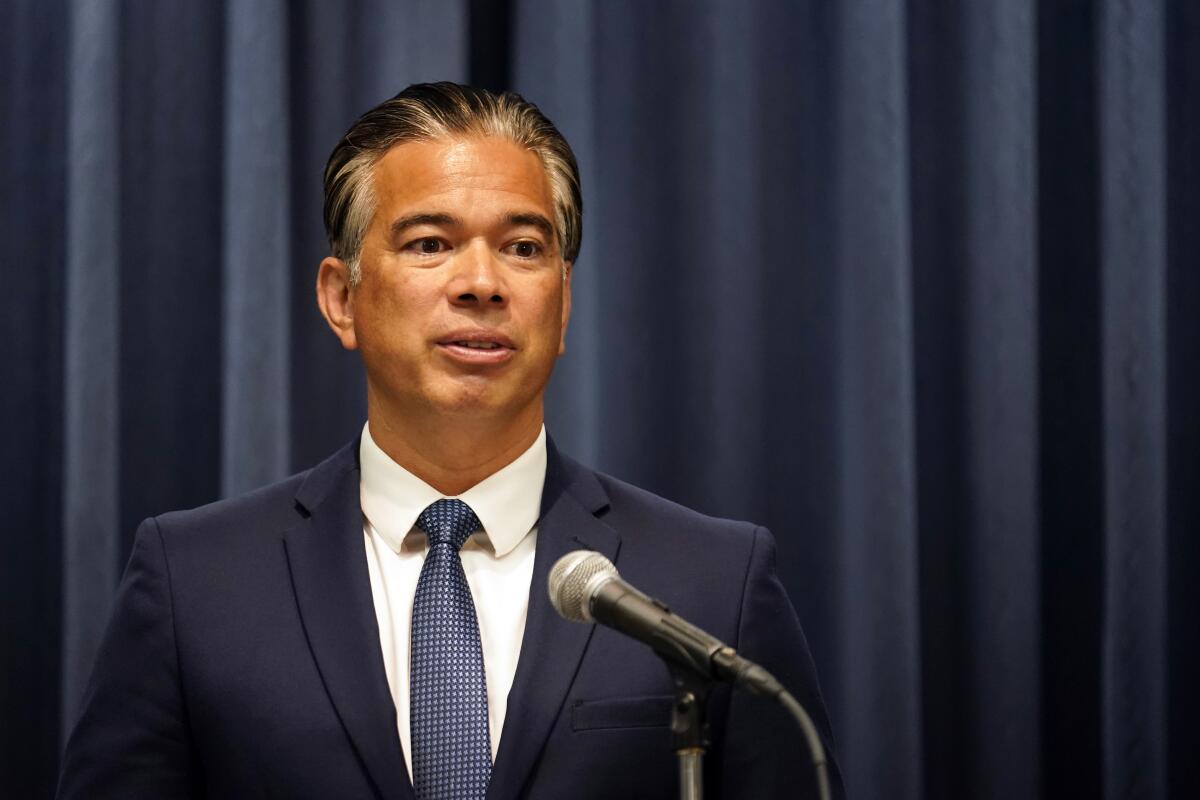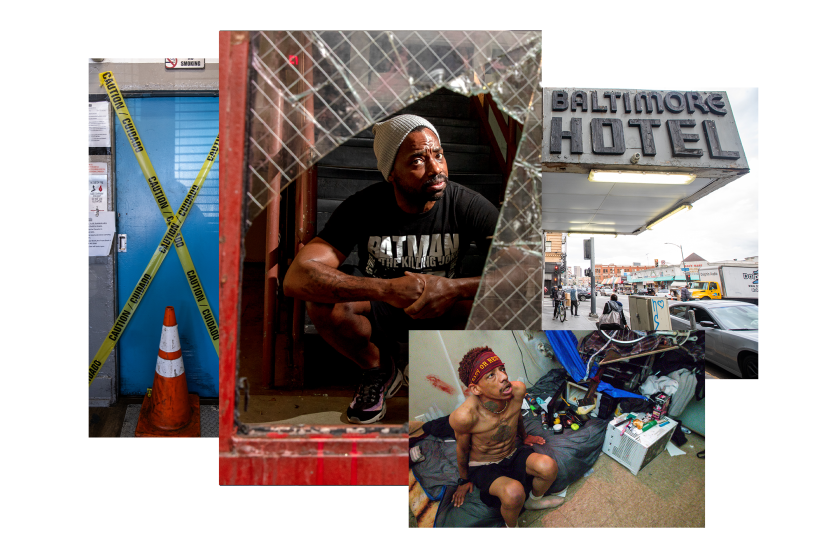California’s attorney general alleges fraud by a Project Homekey contractor

- Share via
California Atty. Gen. Rob Bonta is accusing a contractor with the state’s Project Homekey homeless housing program of putting projects in jeopardy by illegally borrowing against them.
In a civil lawsuit filed in Los Angeles County Superior Court, Bonta demands that Shangri-La Industries return more than $100 million in Project Homekey funds and asks the court to place the seven properties in receivership.
According to the complaint, Shangri-La took out loans on six of the seven properties without obtaining approval from the state or recording the required affordability restrictions on the properties. The state learned of the problem when the banks sent notices of default, and all seven properties are now at risk of foreclosure, the complaint said.
The lawsuit also names Shangri-La’s chief executive, Andy Meyers; Santa Monica-based homeless housing and service provider Step Up On Second; the limited liability corporations that hold title to the properties; several lenders; and cities and counties where the projects are located. Three of the projects are in Riverside, San Bernardino and Thousands Oaks, and four are in Northern California.
Los Angeles-based Shangri-La did not respond to a voicemail and email from The Times.
In an interview with the online publication CalMatters before the lawsuit was filed, Meyers blamed the state for taking months to approve the affordability agreements. “The state has just taken forever to get these agreements out,” he told CalMatters.
Step Up Chief Executive Tod Lipka said his organization, a nonprofit with a mission to house and provide services to chronically homeless people, was “devastated,” not only by being named as a defendant but by the potential harm to its clients.
“For us, the danger is that these projects are stalled and not going to move forward,” Lipka said.
Recently, The Times has been investigating Skid Row’s troubled housing providers, digging into the failures of nonprofits such as AIDS Healthcare Foundation.
Step Up was involved in the projects only as service provider and had no part in the acquisition, financing or construction, he said.
Shangri-La’s website describes the company as a vertically integrated real estate firm “with dedicated finance, development, and construction business units coupled with in-house design, compliance teams, and select sub-trades.”
Lipka said Step Up had worked successfully with Shangri-La on four projects in Los Angeles using funds from the city’s $1.2-billion Proposition HHH homeless housing bond. He said he was aware of the loans but was told by Shangri-La that they were proper and necessary for the completion of the projects.
Step Up is owed money for services it has been providing at the buildings in Redlands and San Bernardino, which are completed and occupied, Lipka said.
“We started to learn of significant problems over two months ago,” he said. “It was very upsetting and devastating for us as an organization.”
Lipka said the organization is building in due diligence processes “to ensure this will never happen again.”
The State Department of Housing and Community Development, which administers Project Homekey, released a statement saying Shangri-La “has misrepresented multiple financial considerations and has yet to cure a number of breached contractual obligations.”
“The difficulties they find themselves in are of their own making,” housing agency general counsel Ryan Seeley said in the statement.
The complaint details Project Homekey contributions of more than $114 million to the seven projects, and outside loans that amounted to about $96 million.
The complaint said those loans violated the Project Homekey contracts, which require affordability restrictions to be recorded in advance of any other loans and that any loans must be approved in advance by the state. Mechanics’ liens have been placed on several of the properties by contractors who have not been paid, it said.
More to Read
Sign up for Essential California
The most important California stories and recommendations in your inbox every morning.
You may occasionally receive promotional content from the Los Angeles Times.












